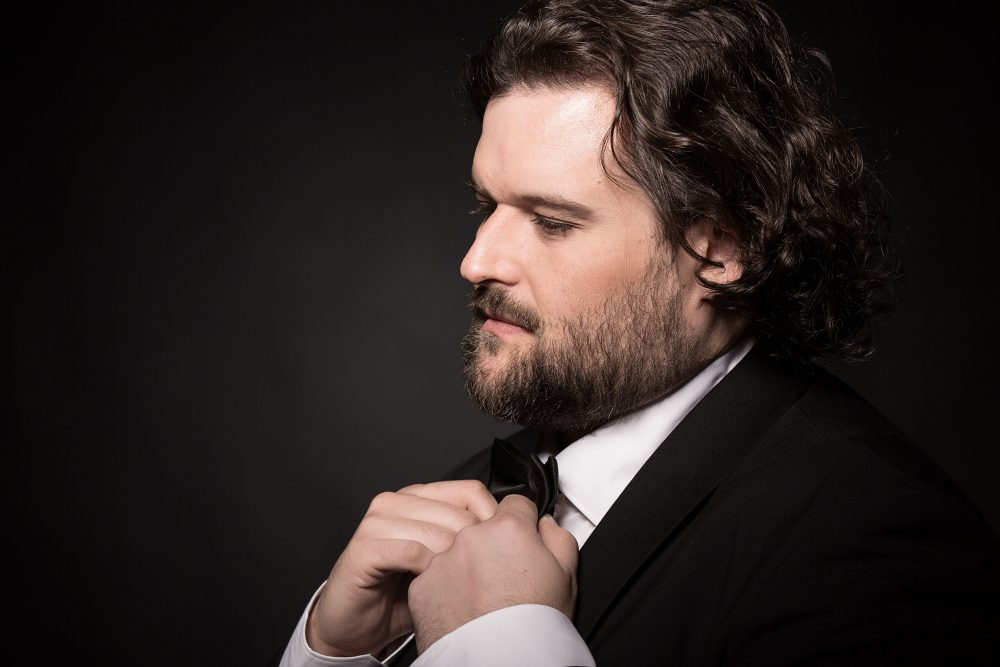
In an unprecedented move for The Dallas Opera, the month of March will be entirely devoted to a single composer—Giacomo Puccini, the gifted and ambitious Italian who gave us Madame Butterfly, Tosca, Turandot and more. The company will present his first real triumph as well as his greatest masterpiece.
Here’s the back story:
After a modestly successful start, and a disastrous second opera, the frustrated composer whose career had inexplicably stalled was determined to get it right.
First, he chose source material with a proven track record: Abbé Prévost’s 1731 novel about a headstrong young woman’s scandalous romances—already the basis for a tremendously successful 1884 opera by Jules Massenet. “Massenet feels it as a Frenchman, all powder and minuets,” wrote Puccini to his publisher, “I shall feel it as an Italian, with desperate passion.”
First, he chose source material with a proven track record: Abbé Prévost’s 1731 novel about a headstrong young woman’s scandalous romances—already the basis for a tremendously successful 1884 opera by Jules Massenet. “Massenet feels it as a Frenchman, all powder and minuets,” wrote Puccini to his publisher, “I shall feel it as an Italian, with desperate passion.”
Puccini then proceeded to make life a living hell for a procession of librettists until Giulio Ricordi suggested calling in an expert: respected playwright Giuseppe Giacosa, who in turn called in the colorful Luigi Illica, a prolific poet and writer, humorist, and all-around force of nature. Illica had lost his right ear in a duel over a woman and was known to close friends and colleagues by his nickname, “Signor Perpetuum Mobile” (“Mr. Perpetual Motion). Because much of the music for Manon Lescaut had been composed by the time Giacosa and Illica joined the project (and could not easily be altered), the librettists concentrated their efforts on the middle sections of the opera, in particular the embarkation scene. To this day, the libretto is published without attribution on the title page, even though seven people—including the composer—had an undisputed hand in its creation.
It was this triumvirate of talents: Puccini, Giacosa, and Illica that would prove to be as golden in their day as Mozart and Da Ponte were in theirs. Together they went on to create an impossibly successful string of operas: La bohème (1896), Tosca (1900), and Madame Butterfly (1904) that continue to dominate the world’s opera stages more than a century after they premiered.
Unlike so many famous operas in the present-day canon, Manon Lescaut was recognized as a triumph on opening night. A critic from Milan reporting on the premiere wrote:
“A few moments ago, Manon uttered her last indescribable, heart-rending cry. The curtain has just fallen…to the wild shouts of an immense public, transported with enthusiasm….I am here, confused, stunned, and wondering, and (what is of more importance) profoundly moved, even to tears. And I am not alone in this. The public has wept with me.”
Puccini had a profound empathy and affinity for his beautiful, dying heroines. As he composed the death scene for the consumptive Mimi in La bohème, he admitted “I had to get up in the middle of the night and, standing by the study, alone in the silence of the night, I began to weep like a child. It was as though I had seen my own child die.” However, three years to the day after the brilliant premiere of Manon Lescaut, Puccini’s greatest masterpiece opened in the very same opera house to less-than-stellar reviews.
It had everything going for it: the up-and-coming Arturo Toscanini conducted before a distinguished and receptive audience; while the opera itself was based on a popular French serial that had already been turned into an even more popular play, La Vie de Bohème. Yet the opening night crowd on February 1, 1896 seemed bewildered by what the opera lacked – a recognizable villain and an over-the-top death scene – and uncertain how to respond to characters who seemed so altogether low-rent and “ordinary.”

The composer lamented, “I, who put into Bohème all my soul; who love it boundlessly and love its creatures more than I can say, returned to my hotel completely brokenhearted. I passed a most miserable night and in the morning was greeted with the spiteful salute of the critics.” However, his misery didn’t last. Subsequent audiences stood up and cheered for the resourceful bohemians and Puccini’s delightful, youthful score—resulting in 24 sold-out houses in the first month of performances.
Giacomo Puccini’s genius for melody and character-driven arias, as well as the storytelling skills of his best librettists were evident in the success of Manon Lescaut in 1893; but by the premiere of La bohème these talents were fully formed and ready to challenge contemporary understanding of what made opera…great. Puccini’s celebration of the human spirit spoke to his fellow composers as well. Following the Paris premiere in 1898, Claude Debussy told Manuel de Falla, “If one did not keep a grip on oneself, one would be swept away by the sheer verve of the music. I know of no one who has described the Paris of that time as well as Puccini in La bohème.”
The Dallas Opera is thrilled to present the rarely performed Manon Lescaut from March 1st through March 9th, and the much-loved La bohème in a production never before seen in Dallas from March 15th through the 31st in the Winspear Opera House in Downtown Dallas.
Tickets start at just $25. Contact the Dallas Opera Ticket Office at 214.443.1000 or purchase online at dallasopera.org.
Suzanne Calvin is an award-winning journalist, producer and writer, serving as Director of Media and Public Relations for The Dallas Opera since 2002.

